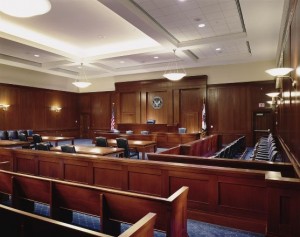LOS ANGELES
 An Avenues gang member who was captured last year after more than a decade on the run was sentenced Monday to 20 years in prison on federal hate crime and firearms charges that were filed against him in 2004, officials announced Tuesday.
An Avenues gang member who was captured last year after more than a decade on the run was sentenced Monday to 20 years in prison on federal hate crime and firearms charges that were filed against him in 2004, officials announced Tuesday.
Merced Cambero Jr., 39, who used the gang moniker “Shadow,” pleaded guilty in February in participating, along with other gang members, in a conspiracy to use violence against African-Americans to interfere with their right to live in the Highland Park neighborhood of Los Angeles.
Cambero also admitted to participating in the 1999 racially-motivated murder of Kenneth Wilson, an African-American man who was shot and killed in furtherance of that conspiracy.
The defendant was sentenced by U.S. District Judge Percy Anderson, who in 2006 presided over the trial of four co-defendants who were charged along with Cambero in the initial 2004 indictment and a superseding indictment that followed in 2005.
The superseding indictment alleged that Cambero and three of the four co-defendants – Gilbert “Lucky” Saldana, Alejandro “Bird” Martinez, and Fernando “Sneaky” Cazares – shot and killed Mr. Wilson because of his race and because he was using the public streets in Los Angeles, and that they used firearms during and in furtherance of that crime.
These defendants were also charged, along with a fourth co-defendant, Porfirio “Dreamer” Avila, with conspiring to use violence to interfere with the federal housing rights of African Americans in Highland Park, including another African-American man, Christopher Bowser, who was shot and killed in 2000.
Saldana, Martinez, Cazares, and Avila stood trial in 2006, were convicted on all charges, and were sentenced to life in prison.
Although Cambero was charged in the same indictment, he was never arrested or arraigned until he was captured in Mexico last year. He was then returned to the United States to face the charges against him.
At the 2006 trial of the co-defendants, a jury heard testimony from two Avenues gang members who participated in the murder of Kenneth Wilson and implicated Cambero and three co-defendants.
The gang-member witnesses also testified about an agreement among Avenues gang members to try to preserve the primarily-Latino make-up of Highland Park by engaging in violence against African Americans.
Their testimony was corroborated by numerous African-American residents of the Highland Park neighborhood who described acts of racially-motivated violence directed at them by the defendants and their fellow gang members.
In court filings connected with Cambero’s guilty plea and sentencing, Cambero confirmed the evidence from the earlier trial, admitted that he and his fellow gang members were in a stolen van when they saw Wilson, whom they did not know, and decided to kill him because of his race.
Cambero admitted that he and two other gang members then got out of the van and fired guns at Wilson, who was killed by a single gunshot through the neck.
“This Justice Department will not tolerate any act of violence motivated because of another’s race,” said Acting Assistant Attorney General John Gore. “The defendant’s egregious actions were unlawful, and as this sentencing demonstrates, will not go without punishment. The Civil Rights Division will continue to vigorously prosecute those who commit violent acts of hate.”
“This defendant was part of a reprehensible scheme that targeted an entire class of people simply because of skin color,” said U.S. Attorney Nick Hanna. “The Justice Department is committed to preserving and protecting everyone’s civil rights – particularly when violent acts are used to violate those rights. Mr. Cambero attempted to avoid prosecution for many years, but we persisted to bring him to justice and send a message to the entire community that this type of conduct will not be tolerated and will be punished.”
After hearing from the mothers of two African-American men killed by the gang, Judge Anderson on Monday accepted the guilty plea and sentenced Cambero to 20 years in prison.
Judge Anderson cited as influencing his decision were the defendant’s acceptance of responsibility and the desire of the victims and witnesses to be spared the trauma of another trial.

